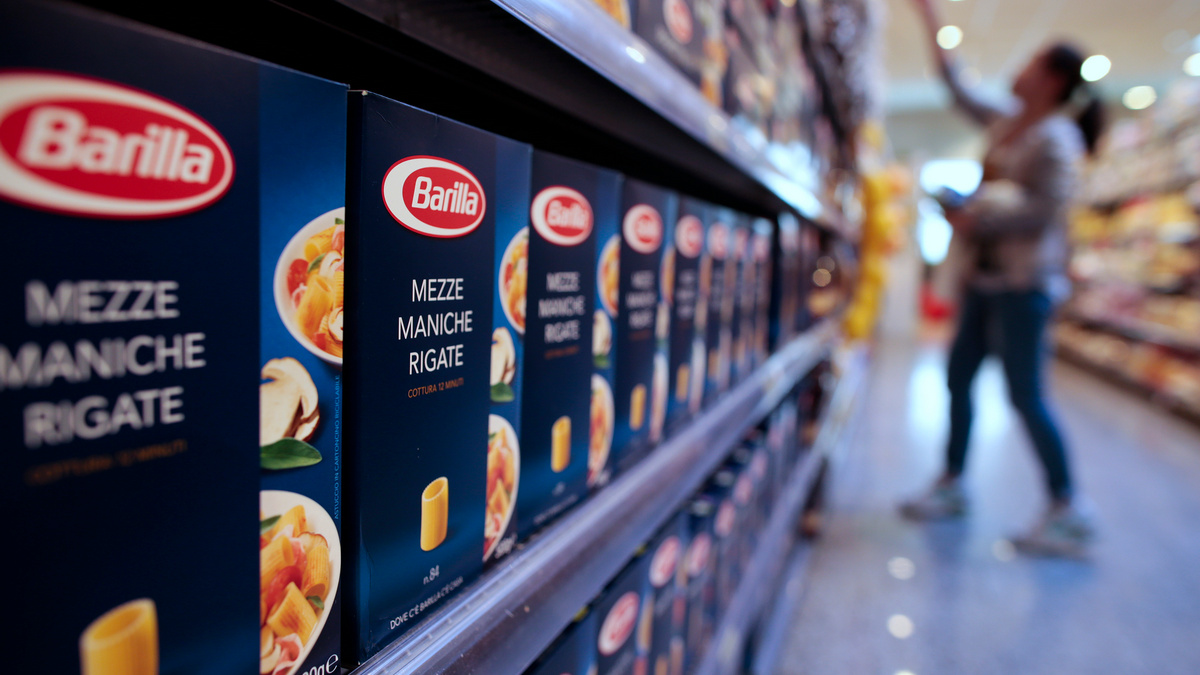Is Italian pasta going to disappear from shelves in the United States?
That’s what some are predicting after the US has imposed a 107 per cent tariff on the product. This comes after the US Commerce Department carried out an anti-dumping probe into pasta exports from Italy.
The tariff, which is preliminary, will take effect in January if it is upheld. The result could see Italian pasta brands disappear from shelves completely or become far too expensive for the average citizen.
But what happened? What do we know? What could be the result?
Let’s take a closer look.
What happened?
The Trump administration had initially imposed a 15 per cent tariff on imports from the European Union. Then, in September, the US Commerce Department imposed a levy of 91 per cent on over a dozen Italian pasta brands.
The development came after the Commerce Department initiated an anti-dumping probe into Italian pasta exports. Dumping usually occurs when a country or a brand exports a product to a new market at a lower price point than a similar product made domestically.
It is done in order to gain market share, get rid of any excess stock of its products, or try to recoup losses. However, it is considered dirty pool as it is harmful to those domestic makers who produce the same or similar products.
The EU has recently taken similar measures on steel products made in Egypt, Japan, and Vietnam. The World Trade Organization also has rules to prevent anti-dumping and allows countries to penalise companies found doing so.
The Commerce Department launched its probe after an appeal by two American manufacturers. The department then called for the two biggest Italian pasta exporters, Pasta Garofalo and La Molisana, to send it information about sales made between July 2023 and June 2024. It also asked the other big pasta exporters to voluntarily send information.
Preliminary results of the inquiry came out in November . It resulted in a 91.74 per cent anti-dumping levy being imposed on La Molisana, Pasta Garofalo, and nearly a dozen other companies.
The pasta brands sanctioned include Agritalia, Aldino, Antiche Tradizioni Di Gragnano, Barilla, Gruppo Milo, and Pastificio Artigiano Cav, Pasta Garofalo, La Molisana, and Rummo. Barilla is less likely than the other companies to be impacted because it produces pasta in America for the US market.
The Commerce Department said that the two companies “did not provide information requested by Commerce” and were thus deemed “to have been uncooperative.”
An official told The Washington Post that the tariff remains ‘preliminary’ and will be studied over the next few months. However, if things don’t change, it will go into effect in January.
What could be the result?
Experts say that the move could hurt Italian pasta makers. Italy in 2024 exported around $800 million worth of pasta to the United States, which is the second biggest maker of pasta around the world. Italy, the biggest, comprises around 12 per cent of the entire US market.
Luigi Scordamaglia, CEO of food industry group Filiera Italia, told The Washington Post it could impact around half of Italy’s pasta exports to the US. Coldiretti, Italy’s largest agricultural group, has warned it could “have devastating consequences for ‘Made in Italy.’” It said the price of a plate of pasta in the United States could double.
“It’s unfair, it’s a protectionist action of the US against Italian pasta,” Margherita Mastromauro, president of Unione Italiana Food, the largest association of food producers in Italy, told Euronews. “We need help, because a large part of our companies are involved. With a duty so high, it means that all these companies will not export until the new review is done.”
La Molisana and Pasta Garofalo have denied the allegations. Both companies have moved the courts against the US Commerce Department’s decision. However, a European official told Euronews that the move – which is different from the tariffs that Trump has imposed – appears to be in line with the sanctions allowed by the WTO. “We are closely monitoring the case, and if there are flaws in the investigation, we will question it and we will raise the issue with the WTO,” the official told Euronews.
Italian officials have vowed to fight the move, even if the EU has to file a case in the WTO against the United States.
“We must defend and promote the pasta supply chain, both in the US and in Italy, to avoid selling off one of our flagship products of excellence,” Coldiretti president Ettore Prandini previously said in a statement. “The American accusations of dumping are unacceptable and instrumental to Trump’s plan to move production to the US.”
With inputs from agencies
)